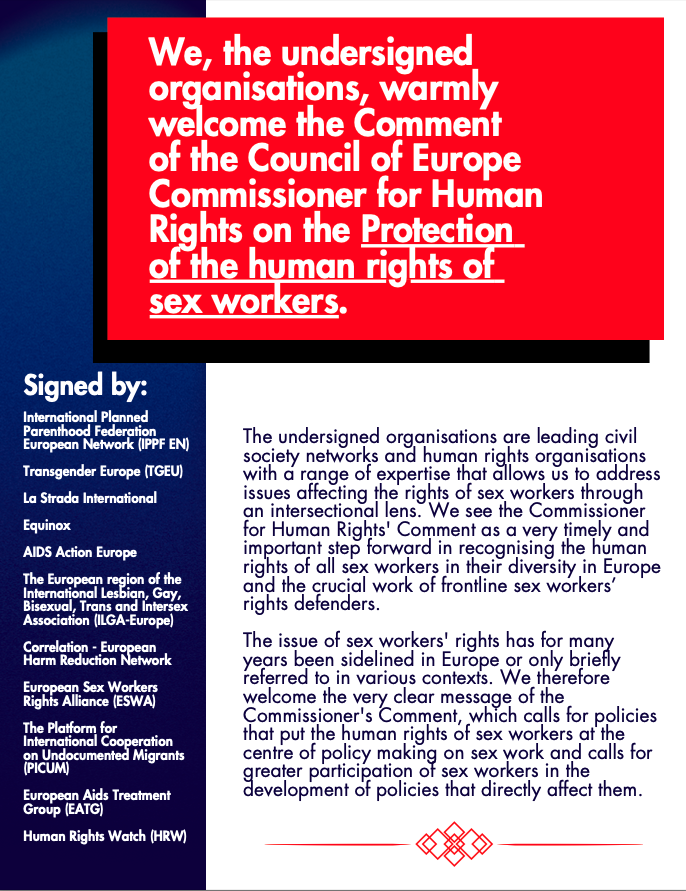
Multiple authors
On EU Anti-trafficking Day, various organizations including C-EHRN are urging the Council, European Parliament and Commission to prioritize a human rights perspective in the trialogue negotiations on amending Directive 2011/36/EU on preventing and combating trafficking in human beings and protecting its victims.
The European Commission proposed criminalizing the use of services connected to trafficking in human beings with the knowledge that the person is a victim, and the Council suggested adding an element of intentional use of such services. However, the FEMM and LIBE Committees took a different stance by approving a report last week, considered the final position of the European Parliament. The report distinguishes between the “purpose” of exploitation and does not require knowledge or intention in the use of services of people who are the objects of exploitation of the prostitution of others or other forms of sexual exploitation. Furthermore, the Parliament recommends Member States consider criminalizing clients of sex workers.
Such measures could overreach criminal law, deter reporting of trafficking cases, erode victim rights, and fail to target the true perpetrators. We, the organizations signing the statement, oppose to differentiating between types of human trafficking in the directive and to removing the knowledge requirement for the use of services to be a criminal offence, as it may worsen the situation for victims. Buyers often assist victims in escaping exploitation, and criminalization would deter such assistance. Additionally, the report’s call to criminalize all clients of sex work lacks evidence that it combats trafficking. The approach is stigmatizing and potentially conflating sex work with trafficking. We call for measures that empower all victims, ensure access to services, implement labour rights, and provide secure residence status.